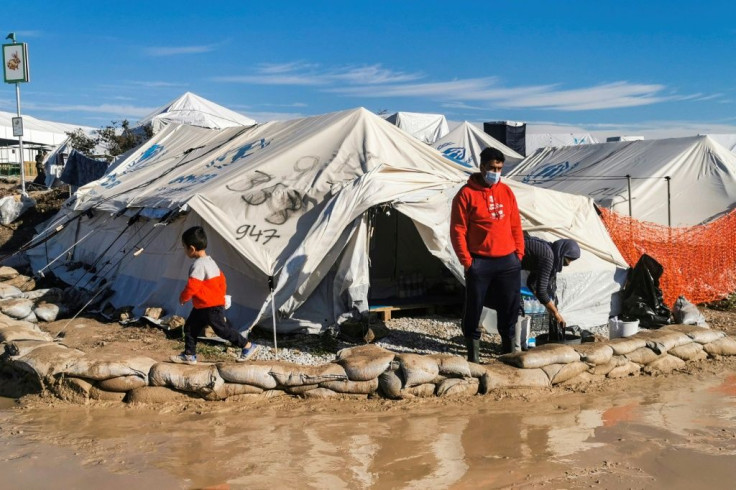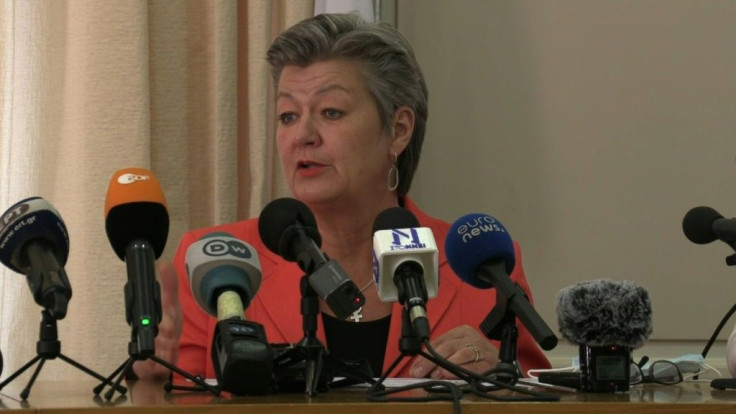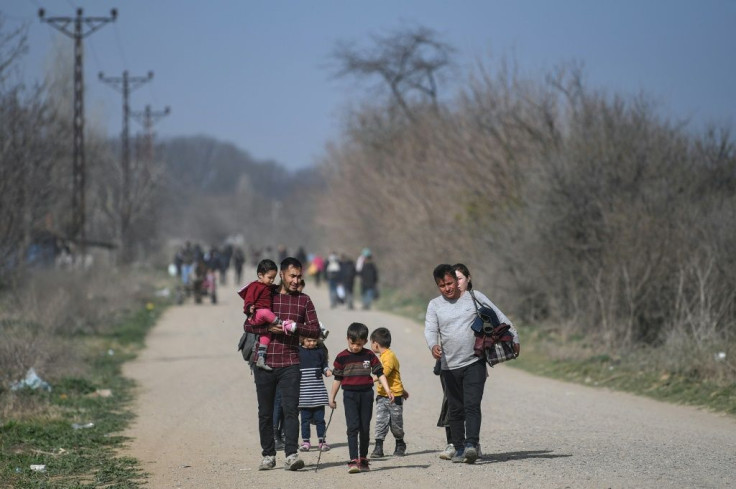EU Says Turkey Should 'Urgently' Resume Accepting Migrants From Greece
The European Union said on Monday that Turkey must "urgently" resume accepting migrants from Greece, where thousands are being held in camps, days before EU chiefs are to visit Ankara.
Greece, which has also been seeking support from EU allies in a decades-old maritime dispute with Turkey, wants Ankara to better police migration routes and take back hundreds of asylum seekers found ineligible for refugee protection.
"I call on Turkey to urgently resume the return of migrants from Greece," said EU home affairs commissioner Ylva Johansson during a visit to the island of Lesbos, which hosts more than 8,000 asylum seekers.
EU chiefs Ursula von der Leyen and Charles Michel are set to visit Turkey next week to meet President Recep Tayyip Erdogan over migration and other regional issues.

Johansson also pledged 276 million euros ($326 million) of EU money for new camps on the islands of Lesbos, Chios, Samos, Kos and Leros, where nearly 14,000 migrants are hosted.
She said it was imperative to find "new political solutions" to share the burden between EU states.
"For three years there had been no progress on finding a political solution," Johansson said.
"I can understand that everybody has a limit to their patience... this limit is close, also here on Lesbos and in some other areas," she said.
Greek's Migration Minister Notis Mitarachi echoed Johansson's call, urging Ankara to accept 1,450 migrants whose asylum applications had been rejected.

He has said new migrant camps are being built to host migrant populations, with one in Samos to completed by June and others in Kos and Leros by September.
He said that at present, EU border states were facing a tall order in having to "guard frontiers, examine asylum claims, host asylum seekers, protect the vulnerable, return those not entitled to international protection, and integrate refugees".
Greece has toughened its migration policy since conservative Prime Minister Kyriakos Mitsotakis came to power in 2019.

Border patrols have increased, asylum processes have been quickened and benefits have been slashed, even for refugees who are granted asylum.
But opposition to housing migrants in Greece remains.
Monday's press conference was delayed by roughly 300 people demonstrating against the planned Lesbos camp, in a protest called by local governor Costas Moutzouris.
"The islanders will not allow the construction of permanent camps on Greek and European borders," the governor said in a statement.
Moutzouris had also whipped up opposition to the new camp last year. An attempt by the government to move ahead with construction work had prompted days of riots and clashes with riot police.
Greece has been accused by rights groups of repeatedly pushing back migrant boats in violation of international law.
Government officials have denied the claims.
"We haven't returned boats. We have prevented boats from entering European and Greek territory, but this is something allowed by the regulations," Migration Minister Mitarachi told AFP in an interview earlier this month.
On Monday, he once again "strongly" denied the claims, insisting that investigations by EU border agency Frontex had found "no breach of fundamental rights to the cases that have been examined".
Greek authorities have likewise found no evidence, Mitarachi said, adding that smugglers are spreading "fake news" about the Greek coastguard.
"Greece is fully adhering to international and European law," he said.
However, Johansson insisted at the press conference that Greece "can do more" to investigate pushbacks.
"We need to protect our external borders and we need to protect fundamental rights, that goes hand in hand, it's not a contradiction," she said.
© Copyright AFP {{Year}}. All rights reserved.




















